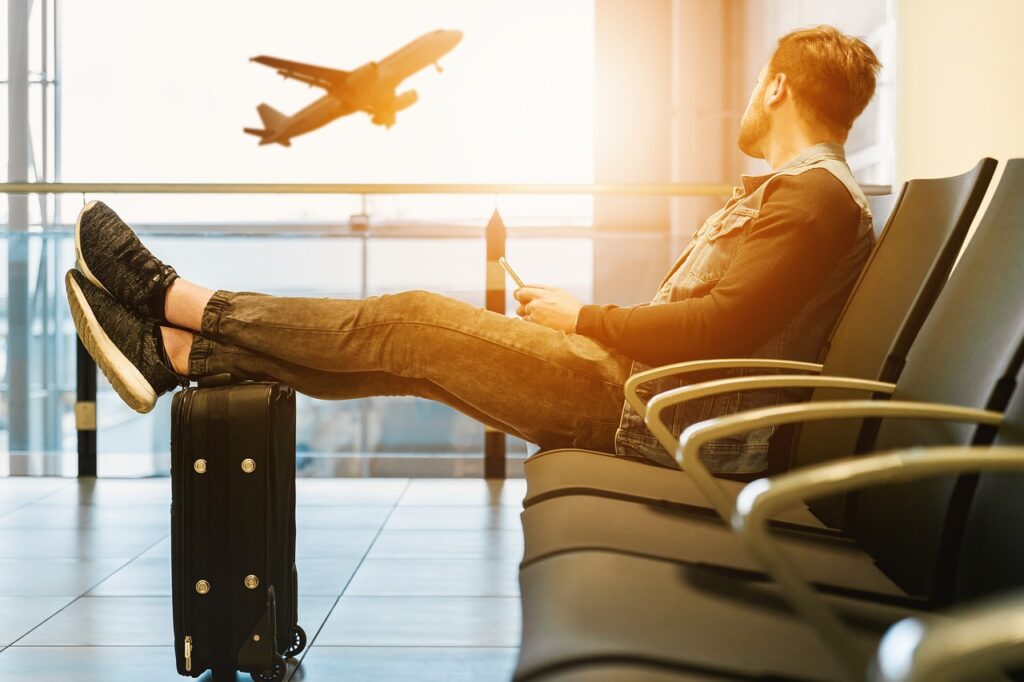Cheap Airfare Prices Are Officially A Thing Of The Past?
Airfare is predicted to skyrocket once again for the holiday season, however, even afterward prices will likely remain elevated due to strong demand and economic factors like inflation.
This article is more than 2 years old
Travelers hoping to make it home for the holidays are encountering stubbornly high airfare prices—and there’s not much hope of them falling anytime soon. Multiple factors are involved in the consistently high cost of securing a boarding pass, including airlines passing the rising cost of fuel onto their customers. Even so, post-pandemic passengers seem willing to keep paying more to reach distant destinations in a hurry.
Scott Keyes, the founder of Scott’s Cheap Flights, a popular site for frequent flyers to find discounted airfare prices, shared his thoughts with CNBC. “Holiday flights are going to be expensive once again,” said Keyes. “The pricing power has shifted back to the airlines for winter holiday travel.”
Keyes also said that early booking is the key to finding the best airfare prices. “Last-minute fares tend to move in one direction, and it’s not down,” he said. In fact, Keyes recommends that people planning to fly next spring and summer go ahead and book those flights this winter.
According to Hopper, a site that tracks airfare prices, holiday travel will be cheaper at Thanksgiving than at Christmas. Domestic roundtrip fares over Thanksgiving are averaging $274 this year, which is 19% more than in 2021. Flying home for Christmas is averaging $390, reflecting a huge jump of 40% over last year’s holiday fares.
Customers wondering why airfare prices are so expensive have several factors to blame, starting with staffing shortages. Airlines had to offer pilots and other key personnel early retirements during the pandemic crash. Although hiring has increased, it takes a great deal of time to train and certify pilots and flight attendants.

Staffing shortages lead to canceled flights as planes cannot legally take off without certain numbers of qualified staff aboard. Delta and other major carriers have proposed changing their training programs to make it easier to become a certified pilot. Some carriers have dropped the four-year degree requirement for prospective pilots and are considering reducing new pilots’ flight hour requirements.
When flights are canceled, open seats on other flights become even hotter commodities—especially during the busy holiday season. Flights to smaller cities are usually canceled first, complicating airfare prices and travel plans for those living hours away from major air hubs. Airlines also report that deliveries of new airplanes are being delayed and the lack of new aircraft also interferes with their ability to keep up with demand.
Surprisingly, the demand for premium seats is strong despite the state of the economy. American Airlines’ CEO Robert Isom told CNBC, “Paid seats in premium classes are running five to 10 percentage points over 2019.” Airlines use 2019 as a reference point for statistics since it was the last normal year before the pandemic.
Rising inflation has also hit the airline industry hard, with airfare prices up a whopping 43% over this time last year. That percentage has remained virtually the same since August and could increase in 2023. Airline shares are still down sharply this year, with the NYSE Arca Airline index showing slight recent gains in an overall dismal year.
Airlines have struggled with the return to normalcy in air travel, making schedule changes in 2022 that left some passengers stranded at airports for hours. One way the pandemic positively influenced air travel is that larger airlines removed flight change fees on standard economy tickets. This policy increased travelers’ flexibility, but flyers should be aware that a similar flight may come with a higher price tag.



